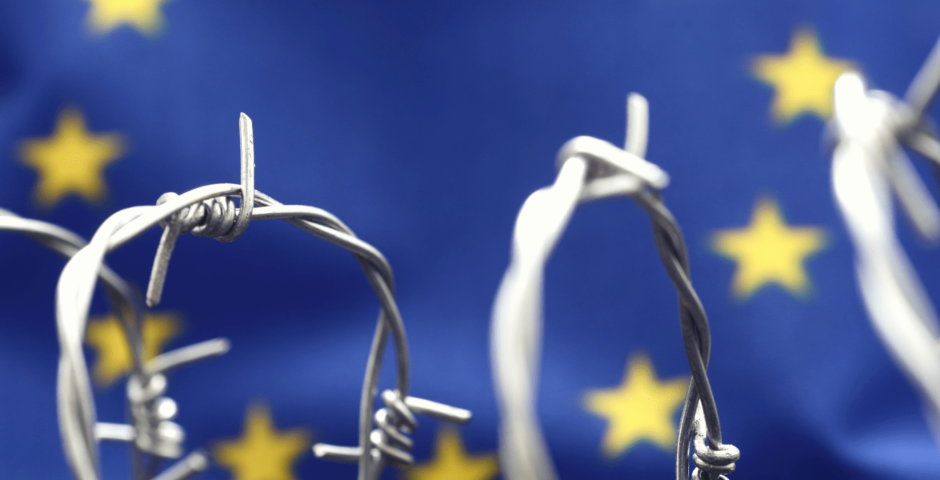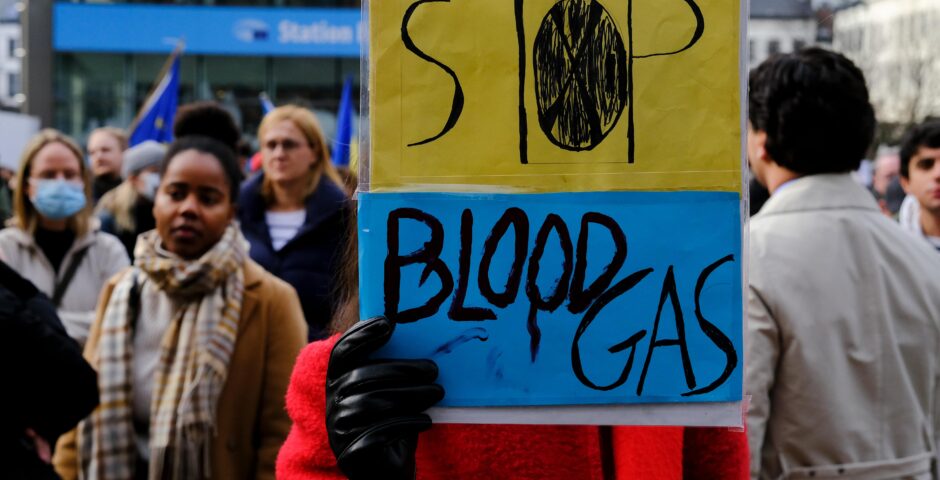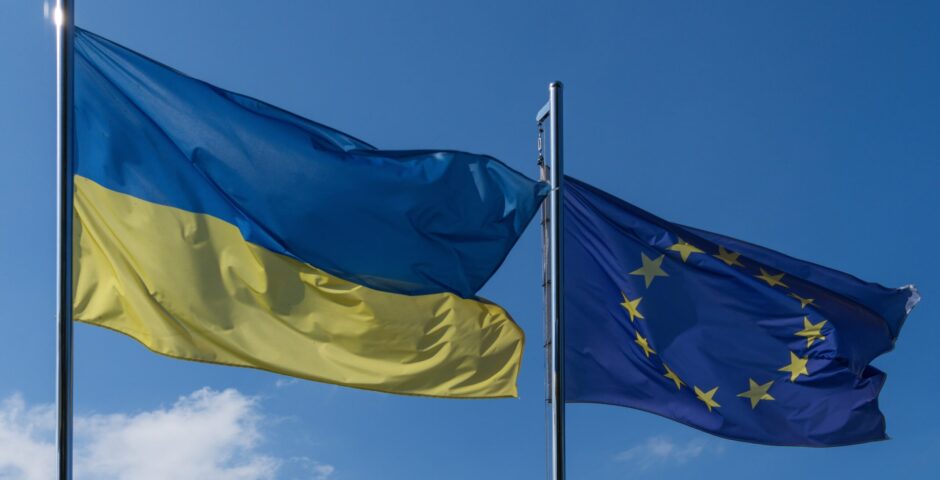Burden-Sharing and Solidarity

Why the EU fails to solve the Migrant Crisis.
In recent years, Europe has faced a significant migration crisis as millions of people have fled war, persecution, and poverty in the Middle East, Africa, and Asia. The crisis has placed a huge burden on countries in the European Union (EU), particularly those located on the southern and eastern borders of the bloc. While some countries have shown a willingness to welcome and integrate refugees as well as asylum seekers, others have been resistant to taking on their fair share of the burden, leading to tensions and disagreements among EU member states. The problem of burden-sharing has emerged as one of the most pressing challenges facing the EU’s migration policy, with calls for greater solidarity and cooperation among member states in managing the crisis and ensuring the safety and well-being of refugees and migrants.
Where do we stand as of now?
According to recent figures from the UN’s refugee agency, the number of undocumented migrants arriving in Europe via sea has increased significantly in the first quarter of 2023, reaching over 36,000 individuals in the Mediterranean region alone. This number is a doubling compared to 2022 and marks the highest influx since the start of the refugee crisis in 2015 and early 2016. The rise in arrivals is creating chaos and straining the resources of the main countries of entrance like Spain, Italy and Greece, but also other European countries.
Specifically, there are concerns about the capacity of the reception centers and the ability to manage the health needs of the new arrivals. Additionally, there are concerns about the ability to process asylum claims and the potential for social tensions in the communities hosting the new arrivals . The earlier refugee crisis has led to a breakdown of solidarity among EU member states and created border chaos, and the EU is at risk of falling into the same chaotic situation in which it found itself back in 2015.
Several effective solutions to tackling the migrant crisis have been implemented in Europe since then, including providing humanitarian aid and safe passage to those in need, increasing funding for refugee resettlement and integration programs, and addressing the root causes of migration through development aid and diplomatic efforts. The most significant one, however, is burden-sharing, in which all EU member states share the obligation of hosting and integrating refugees and migrants. This strategy guarantees that no single country is overburdened, and that resources and assistance are allocated properly.
Despite this, member states struggle to implement burden-sharing because they have different interests, priorities, and political agendas. Some nations stated that they have already accepted a large number of refugees and cannot take in any more, while others decided to prioritize border security and reduce illegal migration as a result. There are also difficulties in coordinating and executing common regulations and processes, as well as concerns with finance, resources, and administrative ability. Because of these issues, member states have lacked unity and collaboration, resulting in a fragmented and inefficient response to the migrant crisis.
The problem with solidarity and burden-sharing in the EU
Back in 2015, German Chancellor Angela Merkel argued that the EU was facing a serious problem with solidarity, particularly in regards to the refugee crisis. Some EU member states were failing to take in their fair share of refugees, choosing instead to build fences and tighten border controls. This lack of solidarity was undermining the credibility and effectiveness of the EU and led to a breakdown in trust and cooperation among member states. It not only violated EU values and principles but also undermined the credibility and effectiveness of the EU as a whole.
There are many reasons behind the issue of burden sharing regarding the migrant crisis within European countries. First of all, political divisions exist among EU member states over how to approach the situation. Some say that governments should not be forced to accept refugees and migrants against their choice, while others think it is their obligation to give sanctuary and assistance to those in need. As a result, there have been conflicts about the lack of clarity on how to evenly distribute the cost of relocation and integration.
We first need to address why burden sharing exists in the first place. The need for burden sharing has been an unintentional consequence of the so-called Dublin Regulation. The Dublin Regulation is an EU law that determines which country should evaluate an individual’s application for international protection. It covers all EU member states, as well as Switzerland, Iceland, Liechtenstein, and Norway. The Regulation is the most important EU law concerning migration and states that the country where a refugee first enters the EU-zone takes on the responsibility for that person. If you try to travel to another country as a refugee, you will be sent back to the first country of registration.
However, many people believe that the Dublin regulation has fundamental flaws: a group of member states calls Dublin an unfair system and the Regulation has been widely recognized as ineffective. Most crucially, it puts asylum seekers at risk and enables violations of their basic human rights. Countries on the front lines of the crisis, such as Greece and Italy, have borne the brunt of the cost, with little help from other EU members, resulting in overcrowded and under-resourced refugee camps. This is because countries on the border of the EU are obviously also the most common country of entrance, which means that in practice there is a huge mismatch in the amount of refugees that certain member states have to take on.
This has culminated in resentment and dissatisfaction as these member states believe they are being abandoned to cope with the situation on their own. Furthermore, the regulation grants the detention and deportation of asylum seekers to their country of entry, even if that country cannot provide adequate protection or processing or facilities like housing, healthcare and education.
As a result, many refugees have found themselves trapped in countries where they face the risk of persecution or are unable to obtain a fair hearing for their asylum requests. These practical challenges can make it difficult for member states to accept and support large numbers of refugees and migrants, leading to reluctance or opposition to burden-sharing efforts as laid down in the Dublin Regulation. Thus, the Dublin Regulation is in need of reform to ensure a fair and just asylum system in the EU.
Where do we go from here?
Peter Sutherland, a United Nations Special Representative, once spoke of a Europe “without military divisions relying on the rule of law.” Sutherland strongly believed that when it comes to the obligatory nature of legal commitments inside the EU, all member states – and their constituents – “must accept that there is no choice: either comply with European law or leave”.
The rule of law is crucial to managing the migrant issue and ensuring burden-sharing among EU member states. Selective adherence to laws can erode trust and cooperation, jeopardizing the collective response to the crisis. Failure to uphold the rule of law can lead to all sorts of issues among member states, making it difficult to reach an agreement on how to address the situation. It also undermines the values upon which the EU is founded. Therefore, member states must uphold the rule of law and collaborate to guarantee a fair and effective response to the migrant crisis.
In 2020, The European Commission proposed a range of measures to strengthen solidarity among EU member states in the context of migration and asylum in its article on “A New Pact on Migration and Asylum.” Firstly, they introduced more efficient procedures that will ensure clearer responsibilities, helping to restore trust between member states while bringing clarity to applicants, along with a common EU approach to search and rescue operations in the Mediterranean, to ensure that those in need of assistance are rescued promptly and humanely.
Secondly, they focus on strengthening cooperation with countries of origin and transit, to address the root causes of migration and support sustainable development. Last but not least, they introduced a more effective and efficient asylum system, which would provide timely and fair decisions on asylum applications, while ensuring that those who are not eligible for protection are returned safely to their countries of origin. This includes establishing a common EU asylum procedure as well as an EU-wide system for choosing which member state is in charge of processing asylum applications. It also aims to increase access to legal assistance and support for asylum seekers, and also to safeguard vulnerable groups. Furthermore, the proposal includes measures to speed up the processing of asylum applications and increase the use of voluntary humanitarian admissions programs
The essence of solidarity and burden-sharing is at the heart of the debate on managing the migration crisis in Europe. It is a question of how we can work together, as a community of nations, to address the needs of those who are seeking safety and a better life, while also ensuring that the burden of hosting and integrating migrants and refugees is shared fairly among all member states.
To address this dilemma, the EU and its member states must find ways to work together more effectively, by developing new mechanisms for burden-sharing, strengthening cooperation with countries of origin and transit, and investing in the integration of refugees and migrants into European societies. Only by acting in solidarity and sharing the burden fairly can we build an asylum system that works for both refugees and the member states that take them in.
Ngan Ha Tran has graduated from the Diplomatic Academy of Vietnam with a Bachelor’s degree in English for International Relations and is currently pursuing a Master’s degree in World Politics and International Relations at the University of Pavia, Italy. She has worked as an intern for a US non-profit organization, named The Borgen Project, that addresses global poverty.
Featured image: Shutterstock




